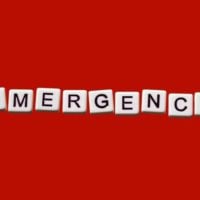Deadline: 23-Sep-21
European Commission is calling proposals for its Plastic Waste as a Circular Carbon Feedstock for Industry Programme.
Scope
- Plastic (and other) waste, such as packaging, textiles, etc., could potentially represent a sustainable alternative to imported fossil feedstock (e.g. oil, gas). It contains high amounts of carbon, it is widely available and its valorisation could also provide environmental and societal benefits avoiding the disposal in landfill.
- The proposals submitted under this topic are expected to provide concepts for utilisation of unsorted plastic (and other) waste in cracking applications, including e.g. packaging, non-sorted polymers and single use items such as PPEs, for the production of material streams of wide industrial interest (e.g. hydrocarbons, olefins, syngas, hydrogen, etc.). The technologies proposed should be electrified to work efficiently in a renewable based energy system. They should also be able to cope with potential fluctuations in energy supply.
Funding Information
Grant amount is equal to or greater than EUR 500 000 except for:
- public bodies (entities established as a public body under national law, including local, regional or national authorities) or international organisations; and
- cases where the individual requested grant amount is not more than EUR 60 000 (lowvalue grant).
Expected Outcomes
Projects are expected to contribute to the following outcomes:
- Valorise a wide variety of unsorted plastic (and other) waste in large amounts, to avoid landfill;
- Yield material streams of high industrial interest, replacing the ones currently produced from fossil feedstocks (e.g. olefins, hydrogen, syngas, etc.);
- Develop concepts enabling 100% utilisation of Renewable Energy Sources (e.g. electrified processes), coping with potential fluctuations in the energy supply;
- At least 60% GHG emissions reductions in the overall lifecycle compared to existing processes for plastic recycling (or relevant benchmark).
Eligibility Criteria
- Any legal entity, regardless of its place of establishment, including legal entities from non-associated third countries or international organisations (including international European research organisations) is eligible to participate (whether it is eligible for funding or not), provided that the conditions laid down in the Horizon Europe Regulation have been met, along with any other conditions laid down in the specific call topic.
- A ‘legal entity’ means any natural or legal person created and recognised as such under national law, EU law or international law, which has legal personality and which may, acting in its own name, exercise rights and be subject to obligations, or an entity without legal personality.
- To be eligible for funding, applicants must be established in one of the eligible countries, i.e:
- the Member States of the European Union, including their outermost regions;
- the Overseas Countries and Territories (OCTs) linked to the Member States;
- eligible non-EU countries:
- countries associated to Horizon Europe
- low- and middle-income countries
For more information, visit https://bit.ly/3jX4Q1M









































